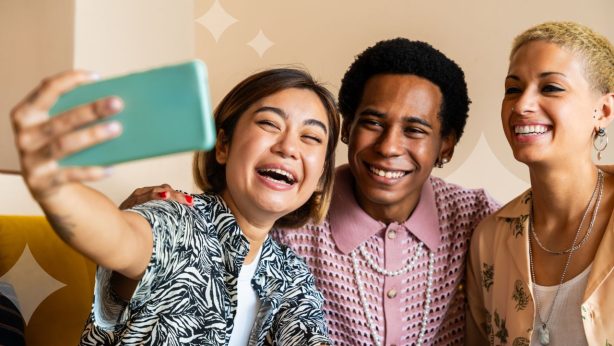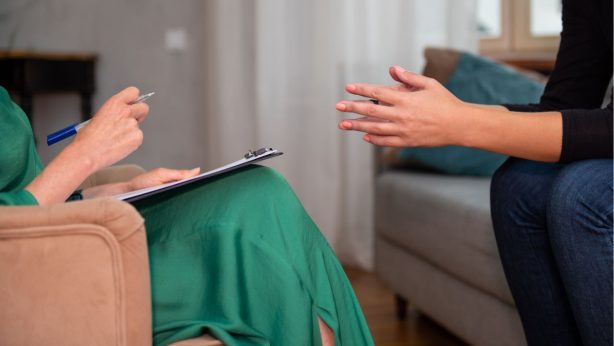Supporting LGBTQ+ Survivors of Sexual Violence: A Guide
Sexual violence can impact anyone but certain groups face higher rates of harm, including LGBTQ+ people. They have unique needs and barriers to overcome in the aftermath of an assault. Understanding this can help us all be better allies and supporters. Let’s take a look at the ways queer people are targeted for violence, special considerations for supporting them, and some practical tips you can use to become a stronger ally.
The Risk for LGBTQ+ Individuals
Research shows that LGBTQ+ people experience higher rates of sexual violence than straight people. According to research by the Centers for Disease Control and Prevention (CDC), almost 60% of both lesbian women and gay men reported experiencing contact sexual violence. The rate is almost 80% for bisexual women and over 56% for bisexual men. For LGBTQ+ youth, the statistics are just as alarming. Compared with their straight peers, queer students reported significantly more experiences of sexual violence, dating violence, and harassment.
These statistics underscore the fact that perpetrators choose to target LGBTQ+ people for abuse. Vulnerabilities can help explain why. Some of the top factors include:
- Discrimination and Stigma: LGBTQ+ people often face discrimination and stigma, which can lead to isolation and make it harder for the abuse to be recognized or for them to seek help.
- Homelessness: Homeless people, especially youth, have many vulnerabilities and are targeted for sexual violence. Queer youth make up a big portion of homeless young people due to family rejection.
- Underreporting: Fear of not being believed, being outed, or facing more discrimination can prevent LGBTQ+ survivors from reporting violence.
Special Considerations for Supporting LGBTQ+ Survivors
Supporting LGBTQ+ survivors requires sensitivity and understanding of their unique experiences. Thankfully, there are several things you can do to show you are on their side.
LGBTQ+ people face homophobia and transphobia from society, and sometimes from people close to them. These forms of discrimination often overlap with others like sexism, racism, classism, ableism, and more. Being aware that LGBTQ+ people are likely dealing with several layers of oppression, which can make trauma worse, will form a foundation for being a more understanding supporter.
You can help create an environment of safety and respect. One building block is using inclusive and affirming language. Always use the survivor’s chosen name and pronouns. Be sensitive with the words you choose so you are not putting blame or shame on the survivor either.
Another key consideration is privacy. All survivors deserve it and privacy can be of even greater importance for LGBTQ+ people. Maintaining their trust can help protect their emotional and physical safety. Never share someone’s sexual orientation, or gender identity, or out them without their consent.
Practical Tips for Supporting LGBTQ+ Survivors
Strong allies are always looking for ways to be better supporters. It may feel overwhelming but don’t let that keep you from growing! If you aren’t sure where to start, try the following practical tips for supporting LGBTQ+ survivors of sexual violence:
Listen Without Judgment
When a survivor shares their story, listen with empathy and without judgment. Believe them and validate their feelings. Creating a safe space where they feel comfortable and supported is crucial. Avoid questioning their experience or suggesting they might have misinterpreted what happened.
Provide Resources
Offer information about LGBTQ+ friendly support services. Clove Alliance and other organizations offer counseling, medical care, and legal assistance tailored to LGBTQ+ needs. It’s essential to have a list of LGBTQ+ inclusive resources like hotlines, groups, and mental health professionals readily available. Check out the round-up below. These resources can make a significant difference in their recovery process.
Educate Yourself and Others
Learn about the challenges LGBTQ+ individuals face and share this knowledge to help others become better allies. Attend workshops, read articles, and follow LGBTQ+ advocacy groups to stay informed. By increasing your understanding, you can provide better support and help dispel harmful myths and stereotypes within your community.
Advocate for Change
Support policies and practices that protect LGBTQ+ rights and promote safe environments. Get involved in local and national advocacy efforts, and use your voice to support anti-discrimination laws and inclusive policies in schools, workplaces, and communities. This not only helps survivors but also prevents future violence.
Creating a Safer World
Supporting LGBTQ+ survivors of sexual violence requires understanding, empathy, and action. By being informed and proactive, you can help create a safer world for everyone. Check out and connect with resources like those listed below to learn more.
We especially welcome people in Kankakee, Iroquois, and Ford counties to connect with Clove Alliance. We stand with all survivors and are committed to providing the affirming support and resources needed to heal and thrive. For more information and resources, visit Clove Alliance.
Resources for LGBTQ+ Survivors of Sexual Violence
- Clove Alliance: a sexual assault crisis center that provides a 24-hour crisis hotline (815-932-3322), legal and medical advocacy, and counseling for survivors. They also offer prevention education programs and training to the community. The organization supports all gender identities and sexual orientations. They serve Kankakee, Iroquois, and Ford counties in Illinois.
- The Trevor Project: Help and suicide prevention for LGBTQ youth. Hotline: 866.488.7386
- LGBT National Hotline: Call center that can direct people to more than 15,000 resources across the USA that support the LGBTQ+ community. Hotline: 888.THE.GLNH (843.4564) pen pals, weekly LGBTQ and Trans chatrooms for teens.
- CenterLink: An international member-based association of LGBTQ centers and other LGBTQ organizations serving their local and regional communities. Their directory helps users find local resources.
- GLSEN: A network of students and educators who form local GLSEN Chapters working to make sure LGBTQ+ students can learn and grow safe schools free from bullying and harassment. Hotline 866.488.7386



